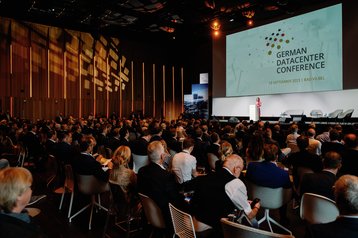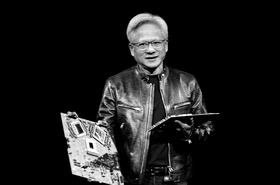The German government defended its Energy Efficiency Bill at the German Datacenter Conference in Frankfurt, two days before the Bill is expected to be passed in the German parliament on Thursday. Update: The bill has passed.
The Bill, or “Energieeffizienzgesetz,” aims to reduce emissions by imposing energy efficiencies on all industrial sectors. Data center operators have criticized it for making unrealistic demands, including low PUE scores and a fast adoption of waste heat reuse.
The bill was amended to improve on these issues, and was due to be passed on the last day of the German parliament (Bundestag) session in July, but this had to be postponed until 21st September, when it is due to be voted on.
“No industry can ignore the goals of the digital strategy and the agreements of coalition [government] partners cannot be questioned, but we have to find a balance of what is reasonable,” said Benjamin Brake, head of the government’s Digital and Data Policy department at the Federal Ministry of Digital Affairs and Transport (BMDV).
The original bill applied to all data centers over 100kW, and required new facilities built from 2025 to reuse 30 percent of their heat. This has been relaxed to data centers over 200kW being required to reuse 20 percent by 2028, he said.
The GDA still objects, saying that there are not enough district heating systems, in the right places, with enough demand for heat. Brake conceded that: “The use of waste heat as the sole criteria for choosing a location is problematic, especially when there are no requirements and obligation for waste heat users.”
Brake, previously the head of IBM’s Berlin office, argued that the requirements would ensure data centers were ready to offer their heat, and allowed a delay for the build-out of modern district heating systems, which can use the lower-temperature heat data centers create.
The measure was also, in part, an enactment of the European Energy Efficiency Directive, said Brake. The EED was presented on stage by Robert Nuij of the European Commission.
Some data center operators were positive about heat reuse. “For us, it’s an opportunity,” said Adam Tamburini chief hyperscale officer EMEA for Stack Infrastructure, which is working on a large data center at the former Coca-Cola plant in Frankfurt.
Stack is already reusing waste heat at its Oslo site, but “the trick is using it,” said Tamburini. “There are going to be some challenges with location going forward.”
At the same time, the PUE requirement is 1.2 for new data centers opening on or after July 2026. GDA members said that this would prove impossible for colocation providers, who cannot ensure their space is fully occupied, or that their tenants have optimized their operations.
The conference heard from Brake that any environmental measures must be balanced against the needs of the industry to remain competitive with those in other countries.
Off stage, however, some GDA members still strongly disliked the proposed Act, and told DCD that they would continue to work to refine or push back against its requirements.
A panel made up of Mayors and officials from various cities and counties (Hattersheim, Gross-Gerau, Hannau, and Dietzenbach) was unanimous in welcoming data centers, feeling that their economic benefits outweighed any local downsides.
And the conference also heard from Christina Mertens of Virtus, the UK-based company which is building a large Berlin facility, with some delegates saying that Germany will develop two strong hubs in Frankfurt and Berlin - a position which would enable it to challenge the UK’s leading position in the European data center market.




